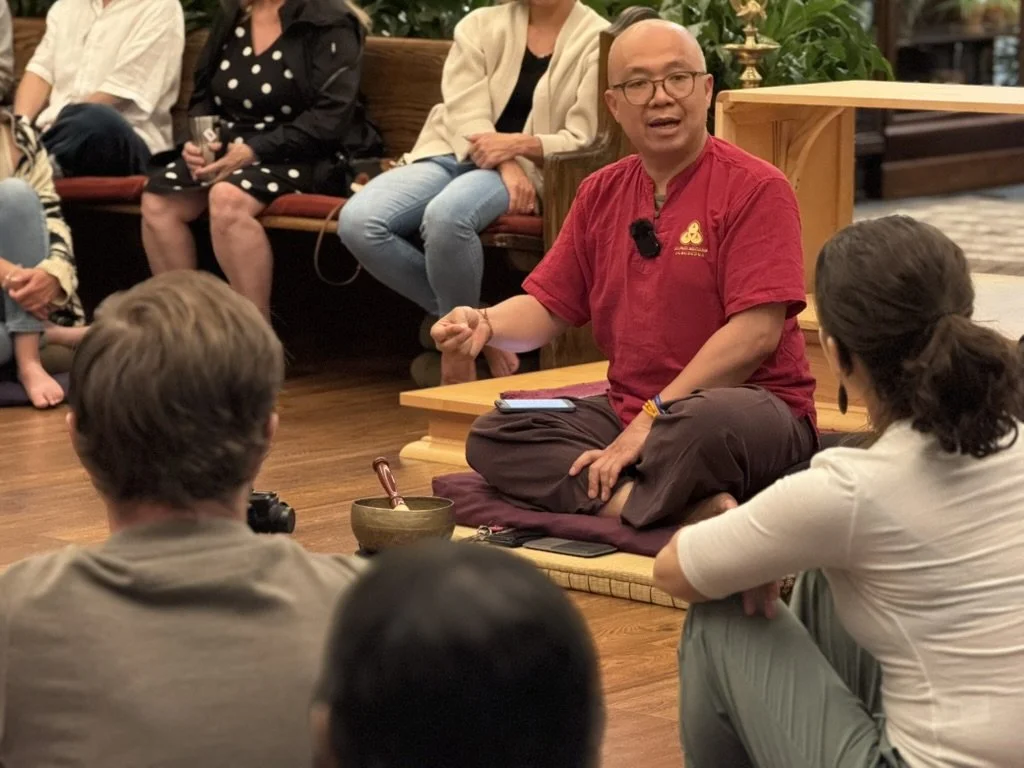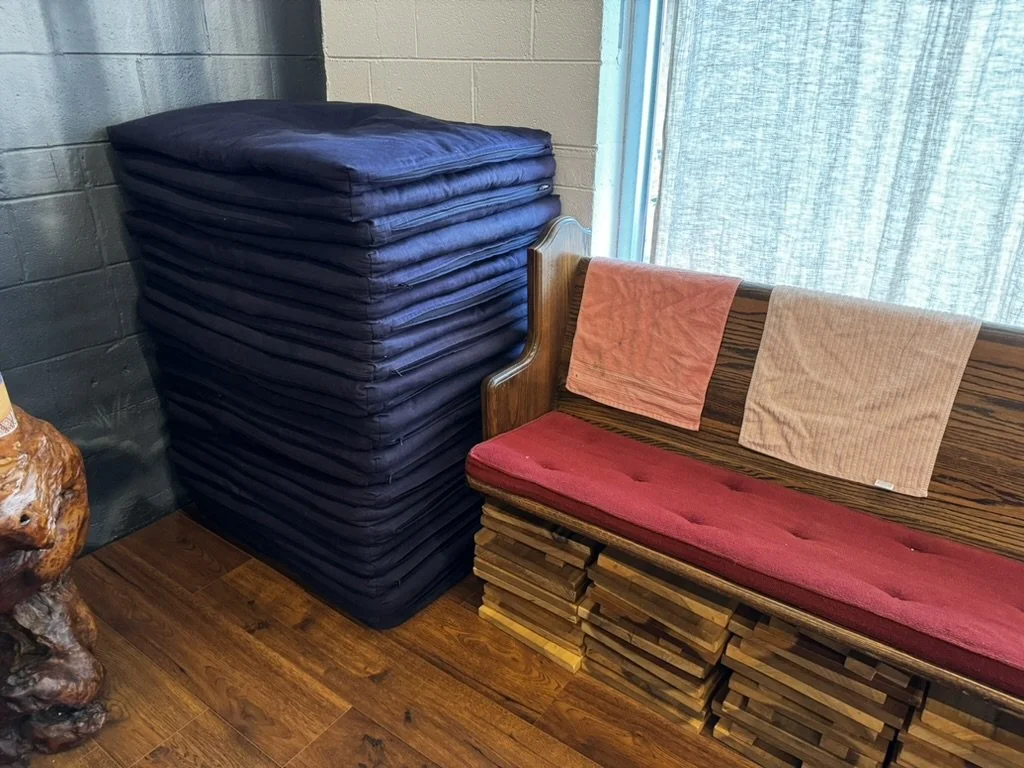
Temple Info
📅 When to Visit
Regular Open Hours
Monday – Friday: 2:00 PM – 5:00 PM
Regular Events:
Link to Event Calendar
📍 Location
657 C Haywood Rd.
West Asheville, NC 28806
Free parking available
♿ Accessibility
Wheelchair accessible entrance and facilities
Gender-neutral restrooms
Meditation chairs and cushions available
Licensed service animals welcome
We are a Buddhist temple with a reading room, and we warmly welcome everyone to participate in our regularly scheduled public programs. Visitors are also welcome during our open hours for personal practice, contemplation, reading, and reflection.
As a Buddhist temple, we have some basic etiquette and ritual-forms that we require visitors to observe. Many of these guidelines have been passed down from ancient times. Please take note of the following while you are our guest.
Temple Etiquette
1. Please maintain a tidy, clean, and quiet demeanor.
2. No footwear or headwear is allowed in the shrine part of our temple.
3. Please dress modestly. Buddhist spaces require visitors to avoid tight and revealing clothing.
4. While seated, do not point your feet towards the altar or teacher.
5. Do not touch or move the sacred objects on the altars.
6. Our space is not for napping, sleeping, or meditating while lying down.
7. Only offer incense and tea lights provided by us and at designated places.
8. Tidy up after yourself.
While many different spiritual approaches are worthy and beneficial, Buddhist training particularly values cultivating skillful restraint and discipline. We invite you to see your time with us as an opportunity to practice restraint in your actions, speech, thoughts, and feelings. The Buddha taught that by doing this, we give ourselves the opportunity to experience release from suffering and unhappiness.
We rely on your generosity in all forms to keep Urban Dharma open and available to all interested visitors. Please help us in whatever way or manner that you can.
Thank you for visiting.
FAQs
-
Yes. When we started Urban Dharma in 2011, we intentionally chose a very public and visible location so that our Temple can serve as a public spiritual space and sanctuary for anyone and everyone who might find comfort and ease in such a setting. We are open Monday through Friday from 2:00pm-5:00pm, along with a variety of Regular Events. We invite you to come visit us.
-
We don’t have a formal dress code at our Temple. If you’re just stopping by for a casual visit or to look around, please feel free to come as you are.
If you’re attending a scheduled service or special event, we kindly ask that you dress somewhat modestly. Clothing that covers shoulders and knees is appreciated. Think of the Temple as a sacred space, and please dress in a way that reflects that respect.
-
No. Although the decor and feel of the space is undoubtedly Tibetan-influenced (with a significant degree of Chinese and Japanese accents and textures all over), Urban Dharma is intended to be first and foremost a public, unambiguous, Buddhist presence and resource in the heart of West Asheville, North Carolina. Many of the key individuals at Urban Dharma are part of Drikung Kagyü Lineage of Tibetan Buddhism, and our founder and spiritual director is a vajra-master (Tib. dorjé lopön) of that lineage, and he provides training in that tradition at the Drikung Dharmakirti International Sangha that meets every Wednesday, 7-9 pm.
-
No. Fundamentally all our programs are offered freely to all. But in order to keep our door open, to serve the community, to bring national and international visiting teachers to offer special programs, and to keep the lights on, we do need an operating budget and an endowment fund to ensure the longevity and sustainability of Urban Dharma. To this end, we have “suggested donation” amounts for special programs (but not for our regular, weekly spiritual programs) and a Sustaining Membership program. “Suggested donation” is just that – suggested. For more information, visit our Giving page.
-
Yes. All the programs listed under our events page are open to all. Some of those programs have particular requirements and levels of commitment expected. Continued participation in those programs would necessitate meeting those expectations.


